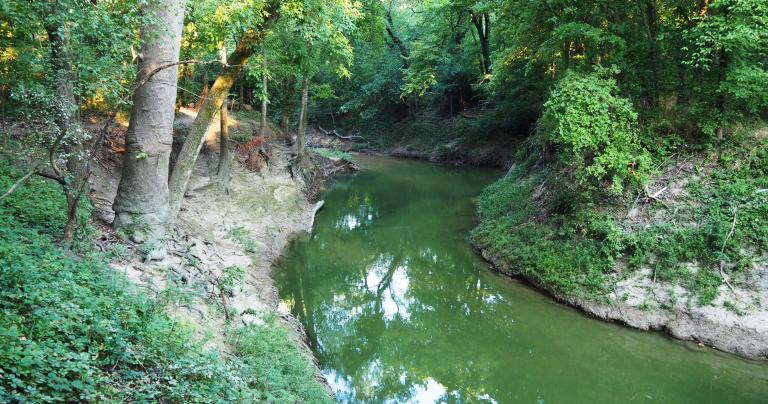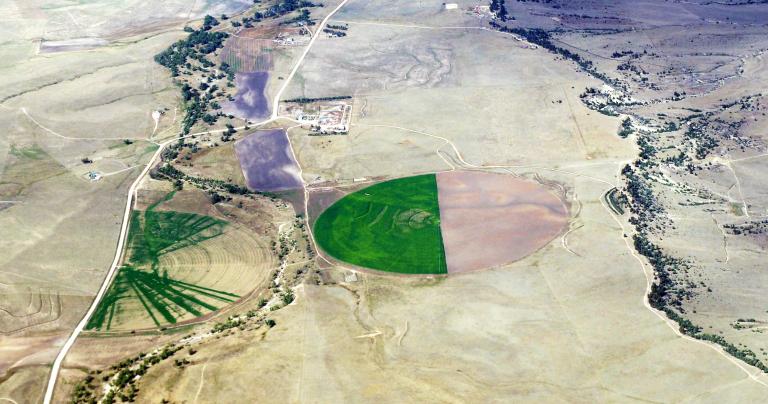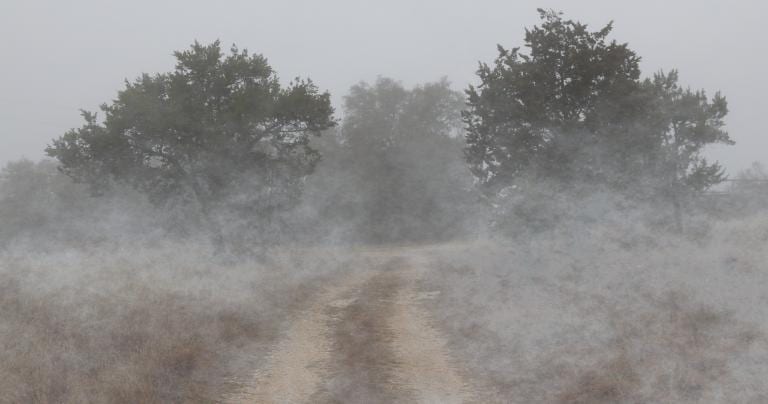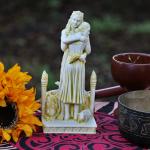The need for divisions? That sound counterintuitive, doesn’t it? We’re always calling for unity, to put aside our differences and work together for the common good. I mean, here in North Texas our local Pan-Pagan gathering is called “Pagan Unity Fest” – I’ve presented there a couple times.
Unity is good, and we need to work together whenever we can. But we can only be united around our agreements. In order to keep our legitimate and meaningful differences from causing needless strife, there are times we need to work separately.
Any time I write about any sort of religious depth – especially matters around the nature of the Gods – someone inevitably accuses me of “demanding orthodoxy” or “promoting Pagan fundamentalism.” They say “people can believe whatever they want to believe!”
In the last post I explained why no one is helped by believing whatever they want. But the fact is that people very much can believe whatever they want, and often do. I would not take that ability from them even if I could, and I can’t. But neither can I be silent about the beliefs and practices that are helpful to me and that I believe to be true.
Hold loosely but practice deeply
It’s not helpful to be agnostic about something that matters (to you if not to everyone). At the same time, it’s dangerous to convince ourselves we have all the answers, or even the best answer.
My approach is to “hold loosely but practice deeply.”
When dealing with issues of inherent uncertainty, I do my best to dive deeply into what I believe is true. I assume it’s absolutely true, so I can explore it in all its depth. When I do this either I find confirmation for my beliefs (which strengthens them) or I encounter contradictions and weaknesses (which causes me to reconsider them).
Even if I find multiple affirmations, I understand I can’t be sure it’s absolutely true so I remain open to other ideas and other ways of thinking. If I come across something that looks like a better way, I examine it and then actively decide to either reject it, or to explore it in more depth.
I find “I can’t be sure so I’m going to remain non-committal” unsatisfying, and I find “we can’t be sure so all answers are equally good” to be blatantly wrong.
People have both the right and the ability to believe whatever they want. But those of us who want deeper explorations need to be able to have them.
Different people have different priorities
For some people, Paganism is about finding the divine in nature and appreciating the interconnectedness of life. For others, it’s about magic and witchcraft. For still others, it’s about the Gods and Their virtues and values. And for some people it’s about not being whatever form of Christian their parents expected them to be.
Who’s right? That’s not a helpful question. Different people have different priorities and none are objectively better than the other (though I argue that defining yourself by what you aren’t is never a good idea).
Respecting each other’s priorities is easy enough when we’re talking in high level, mostly positive terms. It gets harder when we find someone promoting something we know is incorrect, or harmful, or disrespectful. For example, the Morrigan is not a Sex Goddess. Maybe that’s not important to you one way or another, but it’s very important to me.
Deep down it’s not all the same. The deeper we go, the more different it becomes.
And discussing our differences is always harder than discussing our similarities.
What if we had dedicated Pagan spaces centered around these critical ideas?
I don’t debate theology with Christians
I’m a religion geek. I want to know what everyone believes, how they practice, and how that impacts their lives.
Roger Olson is perhaps the best blogger on the Patheos Evangelical Channel. He’s an ordained Baptist minister (American Baptist, not Southern Baptist) and a theology professor at Baylor University. I occasionally read his posts – I particularly like the way he advocates for Arminianism and against Calvinism. Any opponent of Calvinism is a friend of mine.
While I have occasionally left a supportive comment, I do not debate theology with Roger Olson, nor with those who argue against him. I’m a Pagan, not a Christian. I believe in many Gods, not one. I do not believe the Bible is the word of any God, much less that it’s inerrant. We have no common ground from which to have a debate.
Likewise, it’s useless for me to debate theology with nontheistic Pagans, and not much better to debate with those who believe all Gods are aspects of one God.
Meanwhile, for some of us, questions about the nature of the Gods and how to relate to Them are among the most meaningful matters before us. Even though we realize we can never be 100% sure which ideas are right, deep rigorous debates help us to eliminate ways of thinking that are unhelpful and refine ways of thinking that are helpful.
Who should we dialogue with? Or perhaps more relevantly, how should we frame our advocacy so as to invite responses from those for whom these issues matter while causing minimal distractions to those who simply don’t care?
Religion will never be entirely an individual thing
There are those who say we should only ever speak for ourselves, and every statement should acknowledge that other opinions are equally valid. I’ve always found that approach unsatisfactory.
On one hand, it’s obvious that each of us only speaks for ourselves. While I’m a member of several religious organizations, I have no authority to speak for any of them. Even when I held positions of elected leadership, I only had the authority to articulate formally approved positions, such as Denton CUUPS’ inclusivity statement.
On the other hand, when I say I believe the Gods are real, distinct, individual persons, I’m making a definitive statement. I don’t believe conceptions of deities grounded in psychology are just as valid and so I will not say that. I admit they might be right and respect those who think like that, but I do not endorse it.
This and other religious differences matter.
The Pagan community is too broad
Every time I say something about “the Pagan community” someone invariably says “there is no Pagan community.” They’re quite right. There is no Pagan religion – there are only Pagan religions.
We easily understand that Christianity and Buddhism are different religions. But Buddhism has its variants: Tibetan Buddhism is not the same as Zen Buddhism. Zen was introduced to the United States by Japanese immigrants in the 19th century, but it became far more popular after World War II. Today Buddhists debate whether there is a such a thing as American Buddhism. The consensus seems to be that if there isn’t now, there will be eventually.
Modern Paganism has its variants: the many varieties of Wicca and Druidry, various ethnic polytheisms, non-specific reverence for Nature, and a zillion forms of witchcraft. Yet the vast majority of our religious conversations are held under the banner of Paganism – including here, on the Patheos Pagan channel.
I occasionally refer to this post from 2017 titled Why What I Am Takes So Many Words To Describe. It makes the point that while I have identities as a Pagan, a Druid, and a Unitarian Universalist, the religion I practice is ancestral, devotional, ecstatic, oracular, magical, public, Pagan polytheism. That’s the perspective I write from, but it’s a mouthful and it’s not quickly understood.
How do I make it clear that my argument is from and for this position and that (for example) non-theistic Nature worshippers need not concern themselves with it, any more than I concern myself with the peculiarities of American Buddhism vs. Tibetan Buddhism?
We need more clear divisions within Paganism.
The need to stop constantly relitigating the basics
Some people are tired of seemingly constant arguments around basic issues. Honestly, I’m tired of them too. If I’m writing about the individuality of the Gods for the umpteenth time, then I’m not writing about Their deeper virtues and how we can best express them in our lives.
At the same time, the basics are important. Maybe it doesn’t matter to you whether the Gods are individual beings or aspects of our psyches, but it matters a great deal to me and to many other people in the polytheist movement.
We need spaces where certain basics are a given. Then we can stop arguing about whether Gods are internal or external to humans and instead focus on how we can best relate to Them.
Boundaries, not gates
If we have spaces where certain basics are a given, then by definition people who don’t agree on those basics aren’t welcome in them. And that leads to the charge of “gatekeeping!”
This is a misunderstanding of gatekeeping, and a lack of appreciation for the need for boundaries.
I don’t argue with Roger Olson because I’m outside the boundaries of Evangelical Christianity (thank all the Gods!) and I have no stake in their debates. I’m curious as to whether it’s proper to speak of “American Buddhism” but that’s a matter for Buddhists to decide – I’m outside the boundaries of that religion.
OBOD has boundaries, but they do not include theological requirements. I’ve had polytheist conversations at OBOD retreats, but at the end of the day we left as we began – as Druids who share a love of Nature spirituality and Celtic lore. Each group and each tradition must draw its own boundaries as it sees necessary.
I’m calling for a boundary within which those of us who agree on the reality and individuality of the Many Gods can discuss the meaning and implications of that reality, without being distracted by cries of “you can’t tell me what to believe!” and without constantly revisiting foundational matters.
I’m not sure “polytheist” is sufficient differentiation
In the debates and arguments that took place in 2015 and 2016, we drew two main boundaries around the term “polytheism.”
First, polytheism is, in the words of the Anomalous Thracian, “the religious regard for many real Gods.” It’s the belief that the Gods are many and individual, not one and not dependent on humans for Their existence. But polytheism is more than a belief, it’s also the action of giving Them religious regard: worship, praise, and service.
Second, polytheism is not a religion but a religious approach. The many polytheist religions of the world aren’t “denominations” of polytheism – they’re fully formed religions that stand on their own. I speak as a polytheist because I am a polytheist. But I cannot speak for all polytheist religions, nor do I wish to.
How do we draw our necessary divisions?
The beginning of a long process
I say this is the beginning, but for me it started back in 2015. I haven’t written on this much lately, but that’s mostly because the people I was in dialogue with stopped writing, for reasons that are their own. The wider Pagan community never really settled these issues – we just stopped talking about them.
I’m almost 2000 words into this post and I still don’t have a firm recommendation. I wish I did. I just know I want to be able to discuss deep issues deeply, and to frame those discussions in such a way that those who don’t care will understand they’re free to ignore the debate. I want to take the foundations of many real Gods, ancestor veneration, ecstatic and oracular practice, and magic and build on them, not defend them against the same arguments over and over again.
This is where we are at this point in the Pagan restoration. While some religious traditions include all these elements, I know of none that include them and are also focused on the specific deities I’m oathed to and associated with.
I have neither the desire nor the energy to form a new religious tradition.
And also, this is the path I’m on – I can’t abandon it.
And continuing down the same path
So I’m going to keep doing what I’ve been doing: practicing my particular form of polytheist religion, exploring it and its implications in as much depth as I can, and writing about what I learn.
If you find this helpful, I welcome you on the journey and I encourage you to share your thoughts and experiences – let me learn from you too. If you don’t find this helpful, you’re welcome to follow along out of curiosity, as I do with writers in other religions. I welcome your thoughts also… so long as they’re more than “you can’t tell me what to believe.”
I hope more of us will start to congregate around these concepts and ideas. Perhaps over time a new polytheist religion will emerge.
Because while I believe in cooperating where we have common cause, I’m even more interested in diving deeply into those areas where we wrestle with complicated questions and come out with different answers.





















